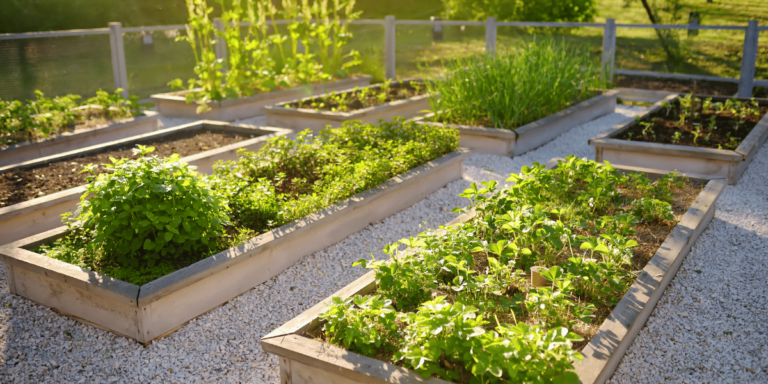Non-Toxic pest control Protecting your garden from pests while keeping the environment safe is a top priority for many gardeners. Traditional pest control methods often involve the use of harmful chemicals that not only pose a risk to your plants but also to your health and the environment. Fortunately, there are non-toxic pest control methods that offer a safer and more eco-friendly alternative.
Non-toxic pest control methods utilize natural alternatives that are effective in controlling pests without the use of harmful chemicals. By adopting these methods, you can create a healthier outdoor space that is safe for you, your family, and the environment.
- Non-toxic pest control methods offer a safer and more eco-friendly alternative to traditional pest control.
- By using non-toxic pest control methods, you can protect your garden while also promoting a healthier environment.
- Homemade remedies and organic pest control products are effective non-toxic solutions.
- Prevention and integrated pest management techniques can help minimize the need for pest control.
- Proper application techniques and precautions should be followed to ensure safe non-toxic pest control.
Benefits of Non-Toxic Pest Control
Non-toxic pest control provides numerous benefits for gardeners, offering eco-friendly solutions and safer alternatives. By choosing non-toxic methods, you can enjoy the following advantages:
- Reduced risk of exposure: Non-toxic pest control minimizes the use of harmful chemicals, ensuring the safety of humans and pets.
- Environmental protection: By avoiding toxic substances, non-toxic pest control helps prevent soil, water, and air contamination, promoting a healthier ecosystem.
- Promotes sustainability: Embracing non-toxic pest control encourages organic and natural methods, supporting sustainable gardening practices and a greener environment.
With these benefits, non-toxic pest control provides a win-win situation, allowing you to safeguard your garden and contribute to a safer, eco-friendly future.
| Benefit | Description |
|---|---|
| Reduced risk of exposure | Non-toxic pest control methods minimize the use of harmful chemicals, reducing the risk of exposure to humans and pets. |
| Environmental protection | Avoiding toxic substances helps prevent soil, water, and air contamination, protecting the environment and promoting a healthier ecosystem. |
| Promotes sustainability | Embracing non-toxic pest control encourages organic and natural methods, supporting sustainable gardening practices for a greener future. |
Homemade Non-Toxic Pest Control Remedies
When it comes to non-toxic pest control, homemade remedies are a great eco-friendly solution. These remedies offer a safe and effective way to address pest issues without relying on harmful chemicals. By using ingredients commonly found at home, you can create homemade sprays and repellents that are both affordable and environmentally friendly.
One popular homemade remedy is an eco-friendly spray made from vegetable oil and mild soap. This combination suffocates and repels insects, effectively controlling their population without posing a risk to your garden or the environment. To make the spray, simply mix one part vegetable oil with one part mild soap in a spray bottle, and then dilute it with water before applying it to your plants.
Another natural option for pest control is using essential oils. Essential oils like eucalyptus and peppermint have strong scents that can repel insects. Simply dilute a few drops of the essential oil with water and spray it around areas where pests are present. Not only do these oils act as natural repellents, but they also add a pleasant fragrance to your garden.
In addition to homemade sprays, companion planting is another effective non-toxic pest control method. This involves growing specific plants together that have natural pest-repelling properties. For example, planting marigolds alongside tomatoes can deter pests like aphids and nematodes. Similarly, planting basil near your beans can help repel bean beetles. By strategically arranging your plants, you can create a natural pest barrier in your garden.
Comparison of Homemade Non-Toxic Pest Control Remedies
| Remedy | Ingredients | Effectiveness | Ease of Preparation |
|---|---|---|---|
| Eco-Friendly Spray | Vegetable oil, mild soap | Effective against a wide range of insects | Simple and quick to make |
| Essential Oil Spray | Eucalyptus or peppermint essential oil, water | Repels insects with strong scents | Requires dilution and periodic reapplication |
| Companion Planting | Varying combinations of pest-repelling plants | Provides a natural pest barrier | Requires planning and knowledge of companion planting |
These homemade non-toxic pest control remedies can effectively address pest issues in your garden while minimizing harm to the environment. They offer a safe and eco-friendly way to keep your plants healthy and thriving. So why rely on harsh chemicals when you can create your own natural pest control solutions using simple ingredients from your pantry?
Organic Non-Toxic Pest Control Products
When it comes to pest control in your garden, organic alternatives offer safe and eco-friendly options. These products are formulated using natural ingredients, providing an effective solution without the use of harmful chemicals. By choosing organic pest control, you can effectively manage pests while promoting a healthier garden ecosystem.
Organic pest control products target pests specifically, minimizing harm to beneficial insects and the environment. They are designed to disrupt the life cycle of insects or dehydrate and kill pests, ensuring that your garden remains pest-free without compromising its overall health.
Examples of Organic Pest Control Products:
| Product | Description |
|---|---|
| Neem Oil | A natural oil that disrupts the life cycle of insects, preventing them from breeding and feeding. |
| Diatomaceous Earth | A fine powder made from fossilized remains of marine plants, which dehydrates and kills pests upon contact. |
By incorporating these organic pest control products into your gardening routine, you can ensure a healthier and safer environment for your plants, while minimizing the use of toxic chemicals that can have detrimental effects on the ecosystem.
With organic pest control products, you can manage pest issues effectively while safeguarding the well-being of your garden. These eco-friendly alternatives provide a safer choice for both your plants and the environment, allowing you to enjoy a thriving garden without compromising sustainability or resorting to harmful pesticides.
Prevention and Integrated Pest Management
Prevention is a crucial aspect of non-toxic pest control, as it allows you to create a garden that is resilient to pest infestations. By implementing preventive measures and adopting integrated pest management (IPM) strategies, you can maintain a healthy and pest-resistant garden environment.
Proper Plant Selection: Choosing the right plants for your garden is the first step in preventing pest problems. Select plants that are known for their resistance to common pests and diseases. Native varieties and heirloom plants often have built-in defenses that make them less susceptible to infestations.
Correct Watering and Fertilization Practices: Providing your plants with appropriate amounts of water and nutrients is essential for their overall health and vigor, making them less appealing to pests. Avoid overwatering, as it can create a conducive environment for pests and plant diseases.
Regular Monitoring: Keep a close eye on your garden to detect any signs of pest activity early on. Regularly inspect your plants for wilting, discoloration, chewed leaves, or pest eggs. By identifying pests at their early stages, you can take timely action and prevent infestations from spreading.
Integrated Pest Management (IPM)
Integrated pest management is a comprehensive approach that combines various strategies to manage pests while minimizing the use of pesticides. The goal of IPM is to maintain a balance between pests and beneficial organisms, creating a healthier garden ecosystem overall.
Cultural Practices: Cultural practices refer to gardening techniques that deter pests naturally. These practices include crop rotation, proper spacing between plants, and regular weed control. By disrupting the life cycles of pests and creating unfavorable conditions for their growth, cultural practices can significantly reduce pest populations.
Biological Controls: Biological controls involve the use of beneficial insects, such as ladybugs and lacewings, that prey on pests. These natural enemies help keep pest populations in check without the need for chemical intervention. You can attract beneficial insects by planting companion flowers and herbs or by purchasing them from reputable suppliers.
Minimal Pesticide Use: In an IPM approach, pesticides are used as a last resort and only when necessary. If pesticide application is required, choose natural and organic options that are safe for the environment and pose minimal risks to human health. Always follow the instructions carefully and apply pesticides judiciously to minimize their impact.
By implementing preventive measures and adopting integrated pest management practices, you can create a garden that is naturally resistant to pests. This not only promotes healthy plant growth but also reduces the need for chemical pesticides, contributing to a more sustainable and eco-friendly gardening experience.
Safe Application Tips for Non-Toxic Pest Control Methods
When it comes to non-toxic pest control, proper application techniques are essential for achieving the best results. By following these safe application tips, you can effectively manage pests without compromising your health or the environment.
Read and Follow Product Instructions
Before using any non-toxic pest control product, it is important to read and follow the instructions provided on the product labels. This includes information on dilution rates, application methods, and timing. Following the product instructions ensures that you use the product correctly and achieve optimal pest control results.
Apply During Cooler Parts of the Day
To avoid plant stress and evaporation, it is recommended to apply non-toxic pest control products during the cooler parts of the day, such as early morning or late evening. This allows the product to effectively target pests without causing harm to your plants.
Take Precautions to Protect Yourself
While non-toxic pest control methods are safer than traditional chemical pesticides, it is still important to take precautions to protect yourself. Wear gloves and protective clothing when applying the products to minimize direct contact with your skin. Additionally, consider using a mask or goggles to prevent inhalation of any airborne particles.
Avoid Spraying Near Water Sources or Active Pollinators
To prevent contamination of water sources and minimize harm to pollinators, it is crucial to avoid spraying non-toxic pest control products near bodies of water or when pollinators, such as bees and butterflies, are actively visiting your garden. This helps to maintain a safe and healthy environment for both the ecosystem and beneficial insects.
By adhering to these safe application tips, you can successfully implement non-toxic pest control methods in your garden, ensuring the well-being of your plants, yourself, and the environment.
Non-Toxic Pest Control Products Comparison
| Product | Ingredients | Target Pests | Application Method |
|---|---|---|---|
| EcoSpray | Essential oils, soap | Insects, mites | Spray on plants |
| Neem Oil | Extract from neem tree seeds | Various insects | Mix with water and spray |
| Diatomaceous Earth | Fossilized remains of diatoms | Crawling insects | Apply as a dust or mix with water |
Eco-Friendly Pest Control Practices for Different Garden Types
Eco-friendly pest control practices can be adapted to different types of gardens, including urban gardens, indoor gardens, and traditional outdoor gardens. By implementing sustainable gardening techniques, you can effectively manage pests while minimizing harm to the environment and promoting a healthier garden ecosystem.
Urban Gardens
In urban gardens, space-efficient vertical gardening and urban permaculture practices can help minimize pest issues. Vertical gardening involves growing plants vertically on structures such as walls or trellises, maximizing limited space and reducing the risk of pests. Urban permaculture, on the other hand, focuses on creating self-sustaining ecosystems that mimic the dynamics of natural systems. By incorporating diverse plants and beneficial insects, urban gardens can naturally regulate pests and promote a healthy balance.
Indoor Gardens
Indoor gardening can benefit from the use of indoor hydroponic systems and organic composting methods. Hydroponics is a soil-less growing technique that utilizes nutrient-rich water to nourish plants. This method minimizes the risk of pests and diseases associated with soil-based gardening. Additionally, organic composting helps maintain a healthy soil ecosystem, enhancing plant resilience and reducing the likelihood of pest infestations.
Outdoor Gardens
For outdoor gardens, green roof ecosystems and contemporary garden artistry can contribute to eco-friendly pest control. Green roofs involve the installation of vegetation on building rooftops, providing habitat for beneficial insects and improving overall biodiversity. By attracting natural predators, green roofs can effectively manage pests without the need for chemical interventions. Contemporary garden artistry, such as ornamental features and sculptures made from recycled materials, can also serve as natural deterrents to pests.
By embracing these eco-friendly pest control practices, you can create a sustainable and eco-friendly garden environment that thrives while minimizing harm to the ecosystem and promoting a healthier planet.
Comparing Eco-Friendly Pest Control Practices for Different Garden Types
| Garden Type | Eco-Friendly Pest Control Practices |
|---|---|
| Urban Gardens | Space-efficient vertical gardening, urban permaculture |
| Indoor Gardens | Indoor hydroponic systems, organic composting |
| Outdoor Gardens | Green roof ecosystems, contemporary garden artistry |
Conclusion
Non-toxic pest control methods offer a safe and sustainable solution for managing pests in your garden. By opting for eco-friendly alternatives and avoiding toxic chemicals, you can create a healthier and safer outdoor environment. Whether you choose to make your own homemade remedies, utilize organic pest control products, or implement integrated pest management strategies, embracing non-toxic pest control practices is a responsible choice that benefits both your garden and the environment.
Eco-friendly pest control not only protects your garden but also contributes to sustainable gardening practices. By minimizing the use of harmful chemicals, you can promote a thriving and balanced garden ecosystem. From reducing the risk of exposure to toxins to preserving beneficial insects and minimizing environmental contamination, non-toxic pest control methods provide a holistic approach to pest management.
Make a conscious choice to prioritize the well-being of your garden and the planet. Embrace eco-friendly pest control practices and enjoy a flourishing and sustainable garden that is safe for both you and the environment. With non-toxic pest control, you can strike a harmonious balance between maintaining a vibrant garden and preserving the natural world.
FAQ
What are the benefits of non-toxic pest control?
Non-toxic pest control offers several benefits, including reducing the risk of exposure to harmful chemicals, minimizing the impact on the environment, and promoting a more sustainable approach to gardening.
What are some homemade non-toxic pest control remedies?
Homemade remedies, such as eco-friendly sprays made from vegetable oil and mild soap, essential oils like eucalyptus and peppermint, and companion planting can effectively control pests without the use of toxic chemicals.
Are there organic pest control products available?
Yes, organic pest control products made from natural ingredients, such as neem oil and diatomaceous earth, are a safe alternative to traditional chemical pesticides.
How can I prevent pest infestations in my garden?
By creating a healthy and resilient garden through proper plant selection, watering and fertilization practices, and regular monitoring, you can minimize the risk of pest infestations. Integrated pest management (IPM) strategies can also help maintain a balance between pests and beneficial organisms.
What are some safe application tips for non-toxic pest control methods?
When using non-toxic pest control methods, it is important to follow product labels, apply during cooler parts of the day, protect yourself with gloves and clothing, and avoid spraying near water sources or when pollinators are active.
How can I practice eco-friendly pest control in different types of gardens?
Urban gardens can benefit from space-efficient vertical gardening and urban permaculture practices. Indoor gardens can utilize indoor hydroponic systems and organic composting methods. Outdoor gardens can incorporate green roof ecosystems and contemporary garden artistry.
Why should I choose non-toxic pest control methods?
Non-toxic pest control methods provide a safe and sustainable approach to managing pests in your garden. By avoiding toxic chemicals and embracing eco-friendly alternatives, you can create a healthier and safer outdoor space.
















